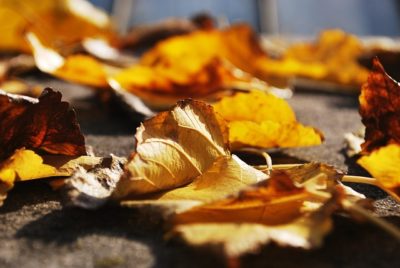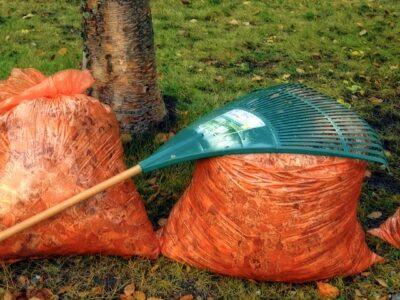In preparation for winter, many homeowners go through the grueling task of raking and bagging leaves. Maybe it isn’t a big deal for those with very small yards in the city, but it can be quite the workout in large yards or around rural homes.
Well, as it turns out, raking your leaves can lead to a more attractive yard but may not be the best idea. Why? Keeping leaves in your yard not only helps the creatures around the tree, but also boosts the health of your lawn, too. Read on to find out how to do it.
Why Leaves Fall
Deciduous trees lose their leaves in autumn as a survival method; no leaves means the tree can conserve water and energy to get it through the winter. As most aspects of nature, a tree losing its leaves doesn’t just help the tree but also assists the environment around it.
The many animals and insects around the tree are looking for shelter to get them through the upcoming winter. In a very wonderful way, the critters are able to use these leaves as a home until spring arrives. As with most things, this system works perfectly well in nature. But it’s a different story when humans begin to disturb this process by raking their yards.
The Problem with Raking
Raking leaves and bagging them destroys the homes these many creatures need. All homeowners should do their best to work with nature and support their local ecosystem. Not only is it part of being a steward of the land, but it also improves the lawn. Homesteaders will benefit from healthier beneficial insect and animal populations come spring, which will improve their gardens, woodlots, ponds, etc.
Seamazing: The Cheap Way To Re-mineralize Your Soil
This no-rake method has been used for decades by various homeowners but lately has made its way into the mainstream, including a recent USA Today article.
Examples of some critters that call leaf litter home in winter include:
- Box turtles
- Salamanders and other amphibians
- Snakes
- Spiders and other arachnids
- Snails and slugs
- Millipedes and centipedes
- Beetles and other insects
- Moth and butterfly pupae
- Worms and other soil aerators
- Soil-improving microorganisms
- Important fungus and healthy bacteria
For example, when caterpillars have a safe place to live you will have a much healthier butterfly population in spring and summer — which will in turn help your garden, fruit trees and general vegetation. Healthy insect populations that rely on leaf litter in winter will also feed birds and predatory insects.
The Best Source For Non-GMO Heirloom Seeds Is Right Here!
While animals benefit from the no-rake method, so does the ground. It will act as a natural fertilizer, improving your soil and also suppressing weeds. Not to mention, skipping raking completely saves a lot of time and reduces costs from bagging.
What to Do Instead of Raking
So if you don’t rake your leaves, what do you do? There are a few options. Some people don’t rake their leaves at all, or just wait until spring arrives before raking them away to a new location. Here are other options:
- Rake up leaves and move to the outskirts of your lawn or just somewhere else on your property where it doesn’t bother you.
- Rake up leaves and put them over your garden beds for protection.
- Rake up leaves and leave them around the base of trees in your woodlot as mulch.
- Mulch the leaves with your mower. Some homeowners use a mulch mower or a special mulch attachment, but neither are necessary. Most mowers will mulch leaves simply by driving over them.
This year, don’t think of fallen leaves as an annoyance, but rather an amazing way nature protects vulnerable critters in winter – and fertilizes your lawn.
Do you have any “leaf advice”? What do you do? Share your thoughts in the section below:
 Off The Grid News Better Ideas For Off The Grid Living
Off The Grid News Better Ideas For Off The Grid Living





